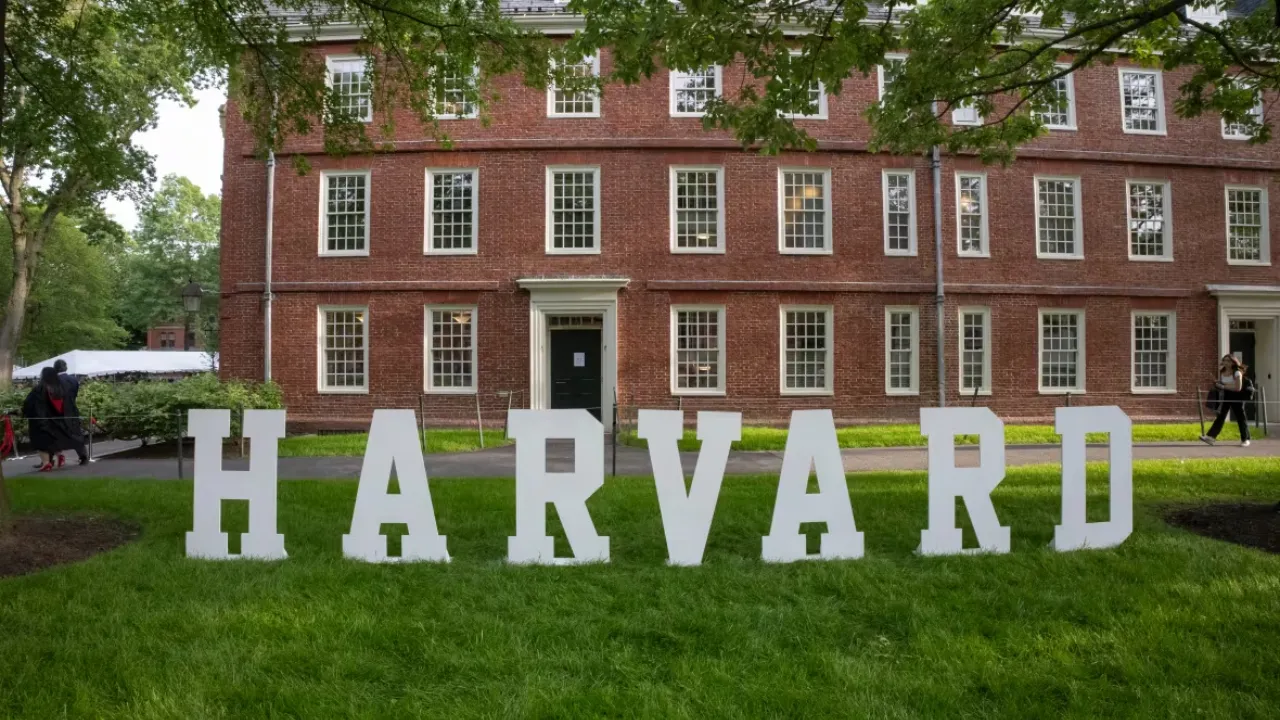Harvard contingency plan international students: Harvard University, one of the most prestigious academic institutions in the world, is facing a major challenge: the future of its international student community is under threat. In light of new restrictions from the U.S. government, the university has quickly pivoted, unveiling a robust contingency plan aimed at preserving educational continuity for its global student body. The move reflects both Harvard’s commitment to inclusive education and the shifting landscape of immigration and higher learning in the United States.
In response to legal action and rising tensions, Harvard has designed alternative learning pathways for students who may be barred from entering the U.S. The Harvard contingency plan international students strategy allows these students to study remotely, join academic hubs around the globe, and even finish their degrees at partner institutions abroad. It’s a bold move blending online innovation with academic excellence—and it may become a model for universities worldwide.
Harvard contingency plan international students
The Harvard contingency plan international students approach offers flexible academic alternatives for foreign students facing travel bans or visa denials. Harvard Kennedy School students will access online courses taught by faculty and attend up to three international, in-person convenings hosted in various cities. Meanwhile, returning Kennedy School students can complete their degrees from the University of Toronto. At Harvard Business School, a hybrid learning model, first used during the pandemic, will again serve as the foundation for remote learning. These solutions ensure that no international student is left behind due to shifting immigration policies or diplomatic standoffs.
Overview Table
| Aspect | Details |
| Schools Involved | Harvard Kennedy School, Harvard Business School |
| Online Coursework | Available for international students |
| In-Person Convenings | Up to 3 in-person, global academic meetups for Kennedy School students |
| Partner Institution | University of Toronto (Kennedy School returning students) |
| Hybrid Learning | Business School uses pandemic-era model |
| Percentage of International Students | 50% at Kennedy School, 35% master’s, 40% doctoral at Business School |
| Legal Dispute | Triggered by U.S. DHS attempt to revoke student hosting privileges |
| Court Decision | Preliminary injunction granted halting federal enforcement |
Harvard Kennedy School: Global Access, Local Presence
More than half of the students at the Harvard Kennedy School are international, making them especially vulnerable to any immigration disruptions. In response, the school has implemented a dynamic plan that offers online education supplemented by global gatherings.
Students can attend remote classes led by Harvard professors while also participating in credit-bearing sessions held in select international cities. These convenings offer networking, real-time learning, and academic immersion that closely mirrors the campus experience. For those returning to finish their degree, Harvard has partnered with the University of Toronto, allowing students to complete their program in Canada if they cannot return to the U.S.
This arrangement brings Harvard’s classroom to the students and proves that geographical limits no longer need to dictate academic opportunity.
Harvard Business School’s Hybrid Revival
Harvard Business School (HBS) is turning to a proven formula: the hybrid learning model it first launched during the COVID-19 pandemic. Dean Srikant Datar emphasized that the school will creatively restructure its MBA and doctoral programs for international students who cannot travel.
Leveraging a global network of research centers and alumni, HBS plans to provide localized in-person experiences. These hubs can serve as classrooms, mentorship centers, and innovation incubators. The school’s emphasis on community and peer collaboration ensures that no student will be academically isolated.
With international students making up a large part of both master’s and doctoral enrollment, this flexibility helps preserve the academic integrity and diversity that Harvard is known for.
Legal Backdrop: Why Harvard Is Taking Action
The need for such a far-reaching contingency plan emerged after the U.S. Department of Homeland Security (DHS) attempted to revoke Harvard’s participation in the Student and Exchange Visitor Program. This would have affected over 7,000 international students and alumni, effectively cutting off their legal status and academic future in the U.S.
DHS claimed Harvard was non-compliant with requests related to alleged student misconduct. Harvard denied the accusations and filed a lawsuit. In retaliation, the Trump administration issued a proclamation blocking international students from entering the country—citing a 70-year-old law typically used against foreign threats.
A federal judge, Allison D. Burroughs, issued a preliminary injunction, putting the ban on hold while the case unfolds. In the meantime, Harvard is moving forward with contingency efforts to protect its students.
Why This Contingency Plan Matters
This situation speaks to a larger issue: the increasing volatility in international education. Harvard’s proactive model ensures that its students, regardless of nationality, can continue their studies without interruption. It also sends a strong message about the university’s values—academic freedom, global collaboration, and inclusion.
The Harvard contingency plan international students effort isn’t just about logistics; it’s about maintaining the university’s international footprint in a time of uncertainty. By offering online courses, in-person sessions abroad, and partnerships with global institutions, Harvard is reinforcing a truth that modern education must be both borderless and resilient.
FAQs
1. What is the Harvard contingency plan for international students?
It’s a flexible academic model that combines online learning, international convenings, and partnerships with other institutions to support international students who can’t enter the U.S.
2. Which Harvard schools are participating in the contingency plan?
The Harvard Kennedy School and Harvard Business School have confirmed dedicated plans to support their international students.
3. Will students studying from abroad still receive a Harvard degree?
Yes. Students who meet all academic and program requirements will graduate with a full Harvard degree, regardless of location.
4. Can Kennedy School students study in Canada instead of the U.S.?
Yes, returning students can complete their degrees at the University of Toronto under the new academic arrangement.
5. What is the status of the legal challenge between Harvard and the U.S. government?
The court has issued a preliminary injunction stopping the administration’s actions. The final legal decision is still pending.
Final thought
The Harvard contingency plan international students strategy isn’t just a temporary fix—it’s a forward-looking vision for global education. By embracing digital platforms, forming international alliances, and investing in hybrid learning, Harvard is not only standing by its students, but also setting a standard for how higher education can adapt in an uncertain world.
Call to action:
If you’re an international student or part of a university navigating similar challenges, stay informed and connected. Visit Harvard’s official portals for updates, consult with advisors, and explore flexible learning paths. Share this article with fellow students and educators—because academic borders should never limit brilliance.



